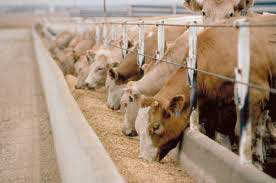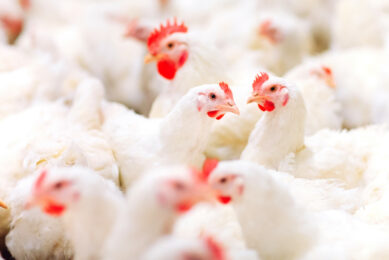Rumen fermentation and digestibility improved with herbs

Animal nutritionists have been attempting to manipulate rumen fermentation not only in order to improve fibre digestibility, but also to reduce CH4 emissions and N excretion. Researchers from the Faculty of Agriculture, Khon Kaen University in Thailand conducted an experiment to find out if it can be improved with herbs such as lemongrass.
Four rumen-fistulated crossbred beef cattle (Brahman native) were randomly assigned according to a 4×4 Latin square design experiment to be fed plant herb supplements in their concentrate mixture. The treatments were: without herb supplementation (Control), lemongrass meal supplementation at 100 g/d (L), lemongrass meal supplementation at 100 g/d plus peppermint powder at 10 g/d (LP), and lemongrass meal supplementation at 100 g/d plus peppermint powder at 10 g/d with garlic powder 40 g/d (LPG), respectively.
Increased ruminal pH
Based on the present study, the DMI and apparent digestibility of DM, OM, aNDF and ADF were not affected by dietary herb supplementation while CP digestibility tended to be decreased by herb supplement. Moreover, NH3-N and BUN were decreased in all herb supplemented treatments and there was a tendency to an increase in ruminal pH in all herb supplemented groups. While there was no change in TVFA and C4 among lemongrass treatments, C2 was decreased in all herb supplemented treatments while C3 was increased.
Effect on bacteria
Methane production by calculation was the lowest in the LP and LPG groups. Population sizes of bacteria and protozoa were decreased in all herb supplemented groups, but not fungal zoospores. In all supplemented groups, total viable and proteolytic bacteria were decreased, while amylolytic and cellulolytic bacteria were similar. More importantly, in all herb supplemented groups, there were higher N balances, while there was no difference among treatments on purine derivative (PD) excretion or microbial N.
Combination of herbs
Based on the results above, it could be concluded that there was no negative effect on ruminal fermentation characteristics and nutrient utilization by plant herb supplement, but protozoal population and CH4 production were reduced. Thus, lemongrass alone or in combination with peppermint and garlic powder could be used as feed additives to improve rumen fermentation efficiency.
The full article can be accessed here.











